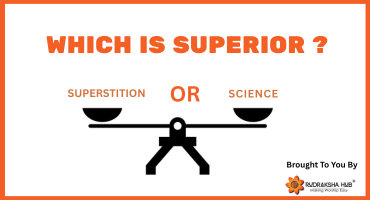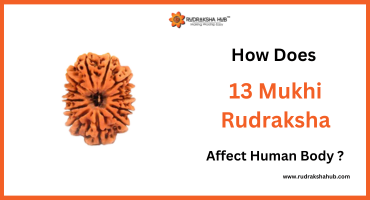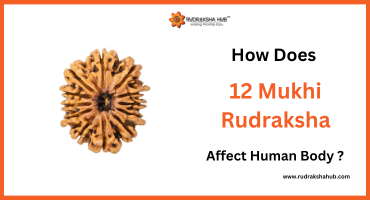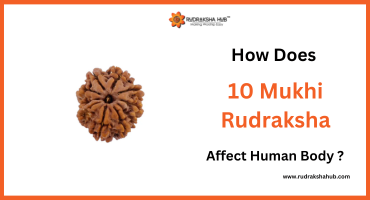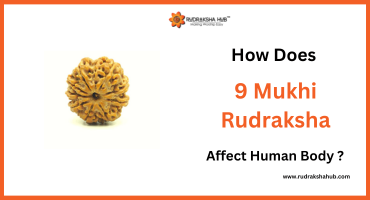
Srimad Bhagwad Gita Shloka, Translation and Meaning
Shlok-1
धर्मक्षेत्रे कुरुक्षेत्रे समवेता युयुत्सवः । मामकाः पाण्डवाश्चैव किमकुर्वत सञ्जय ॥ 1-1 ||
English Transcription:
Dharamchetre Kuruchetre Samveta Yuyutsavaha | Maamkaah Pandavachshwaiva Kimkurwata Sanjaya||
Hindi Translation:
Dritrashtra Kehte hai ki Kurukshetra jaise Dharam Shetra me bhi jab mere apne bête hi mere apne Bhai Pandu ke bete ke dushman bane hai, aise me aisi pawan dharti par bhi main kya karun Sanjay?
English Translation:
Dhritrashtra says that On the lands of knowledge and rich traditional and cultural history, Kurukshetra, my sons, and Pandu’s sons, who are brothers, are relentlessly eager to fight. In such a scenario, what should I do Sanjay?
Meaning:
Dhritrashtra and Pandu were two brothers who handled the Kingdom of Hastinapur together. Dhritrashtra was the father to 100 sons while Pandu was the father to 5 sons. The 100 sons were called the Kauravas and the 5 sons of Pandu were collectively called the Pandavas. Due to the difference of opinions and several incidents wronged at both ends, the Kauravas and the Pandavas were not able to stand eye to eye and were at the juncture of a fight. All the people concerned with these brothers tried t convince each other why not to fight and how to avoid the then-deemed great war, called Mahabharata today.
Multiple efforts were going in vain as the fight was no more about winning a fair tussle. The matters that could have been avoided took place and as a result, the hate and the clash between the two parties increased beyond bounds. Some issues were escalated to create a bad breath of trust and fate between the brothers.
Dhritrashtra means to say in the above line that this is the land where King Kuru had performed the Pooja and Hawan for being the most powerful and loved ruler of his time so that he is undefeated and invincible by evil forces. Such a pure land of blessings was being used as a location to initiate a fight and Dhritrashtra could not understand what would be the most accurate way to stop all this once and for all. He, therefore, mentioned the term “Chetre”, which means the place of the rich worship emotions or the location of blessings equivalent to pilgrimage worth.
In general, there are three things that lead to a fight in humans: money, women, and property. In traditional Hindi, it is termed Jar, Joru aur Jameen. In Mahabharata, the fight started with pride in money and escalated to greed for property and the insult of women. This collectively made all three basic reasons for differentiation come together in a full vicious circle to make matters worse.
Dhritrashtra was an ardent supporter of ethics. He believed in the fact that if there is a waging war outstanding or thought of peace is due, anything and any action taken should be done in the jurisdiction of law, rules, guidelines, and ethics. Despite the same, his own family people were bloodthirsty for the other half and there was no one who was trying to look at the repercussions in a logical manner. This led to a huge uproar in his mental peace because he could not digest the fact that his own people were openly defying his orders. He was very worried because he knew that this will not only be the end of the world but also even if they stop the war right now, then this mentality of not following the pre-set guidelines will lead to the doom of the entire kingdom. He knew that if the people have the idea that their own leader and the king does not believe in fair play, then there will be no guiding light upon them to control their devastating actions. Hence, Dhritrashtra was sure that more than this war, this mentality of not following policies and guidelines will lead to the downfall of everyone.
Majorly, Dhritrashtra was concerned with the attitude of the eldest Kaurav brother, Duryodhana. When the Pandava brothers had asked for their unlawfully usurped kingdom back, Duryodhana had declined any remembrance of the fact that they took away the kingdom forcefully. Also, when the Pandavas had asked them to provide a bare minimum of land enough for five people to live and sleep, in some corners of the kingdom, Duryodhana was the first one to retaliate with a negative answer. Duryodhana had said that Pandavas can forget that they will even get the space equivalent to the tip of the most pointed needle on Earth. He out rightly made a claim that if the Pandavas need a space to live, they need to either earn it in Hastinapur by fighting for it or they can try making a living outside Hastinapur, wherever they feel like. This was a call for war in the lust for property and power that Pandavas had. Duryodhana had made sure that he has not just defied the rules of brotherhood and livelihood, but he had also played with the moral code of ethics of human lifestyle.
Dhritrashtra knew that Yudhishthir, the eldest and most sensible Pandava brother wanted to handle things outside the battlefield. He never wanted a fight. He only wanted the moral code of ethics to be followed for a healthier and happier life and only because of Duryodhan’s greed for kingdom and property, there was a condition for war. Yudhishthir was not convinced about taking up a war against his brothers, even if cousins. But then, he had to fight for his rights. When he was stuck in a dilemma, he asked his mother for a solution as he was very obedient towards her. She was the one who convinced all the five Pandava brothers to marry the same wife and she was the one who convinced him for accepting the bait of war in order to finish everything once and for all and take what is theirs, rightfully. However, the outcome of the war was destined. It was a family feud and only one thing came out of war like this, which was devastation and destruction.
There was one more reason for this hate and the creation of a fight. Dhritrashtra considered all hundred of his sons as his own but he did not give equal importance to his brother’s five sons, the Pandavas. He treated them like his distant acquaintances, but never like his own people. This is exactly why the same feeling sunk in the hearts of his sons also and the distance that Dhritrashtra created extended with his sons, so much so that greed and lust blinded them from understanding the relationships they hold, even if they don’t honor it. This tells all of us that people who are near us, people who are ours, people who try to hold up our spirits are those who are our own and blood relatives or not, they are the ones who have made our lives in some way or other, worth living. Even if there are people who have made issues with living, they have been given a reason to live. So one needs to make sure that each one of us should be thankful to these people. It is never important to always be successful while trying to make your own mark, but having people around to support you in your failure is also important. It will always prevent all of us from doing something wrong and hold pride in ourselves for doing something right.
The eldest Padava brother, Yudhisthir was expected to settle things with Duryodhana by using his wit, but when after immense call-outs from Duryodhana and convincing from Yudhishthir’s mother, he was ready to fight, Dhritrashtra suddenly realized the mistake he also had committed and doubted upon his parenting as well as the mindset of Yudhishthir that took a sharp turn, making him ready for a head-to-head fight. This made Dhritrashtra also question his own philosophies and also question Yudhishthir’s morals. So he says now what should I do Sanjaya?
Conclusion:
This Shlok teaches us that every time there is a possibility of small biasness in your heart, it translates a little noticeably in your actions, and with time, it starts becoming not just crystal clear but also starts brewing up into negative emotions like hate, negativity, jealousy, and anger. Slowly, it becomes challenging to maintain a sanity level and things boil up pretty badly to bring a devastating end to everything. This negativity spills down and spoils other positives, thereby being the poison no one expected or had asked for. Therefore, make sure to use your wit every time you are subject to any kind of hate or thoughts of hate. Try keeping your near ones and your close ones as your dear ones so that they are present to support you in your times of problems and not oppose you in your times of loss. This only saves the threat of losing a greater good while trying to make the ego satisfaction heard.
This was from the Shlok 1 or Chapter 1 of the Shrimad Bhagwad Gita. We will come up with Shloka -2 Chapter-1 tomorrow. Till then, stay blessed and keep worshipping.
Hear this on YouTube: https://youtu.be/sepRVgQis0Q
Hear this on Spotify: https://open.spotify.com/show/7sAblFEsUcFCdKZShztGFC?si=d94d4bd435e649fa

